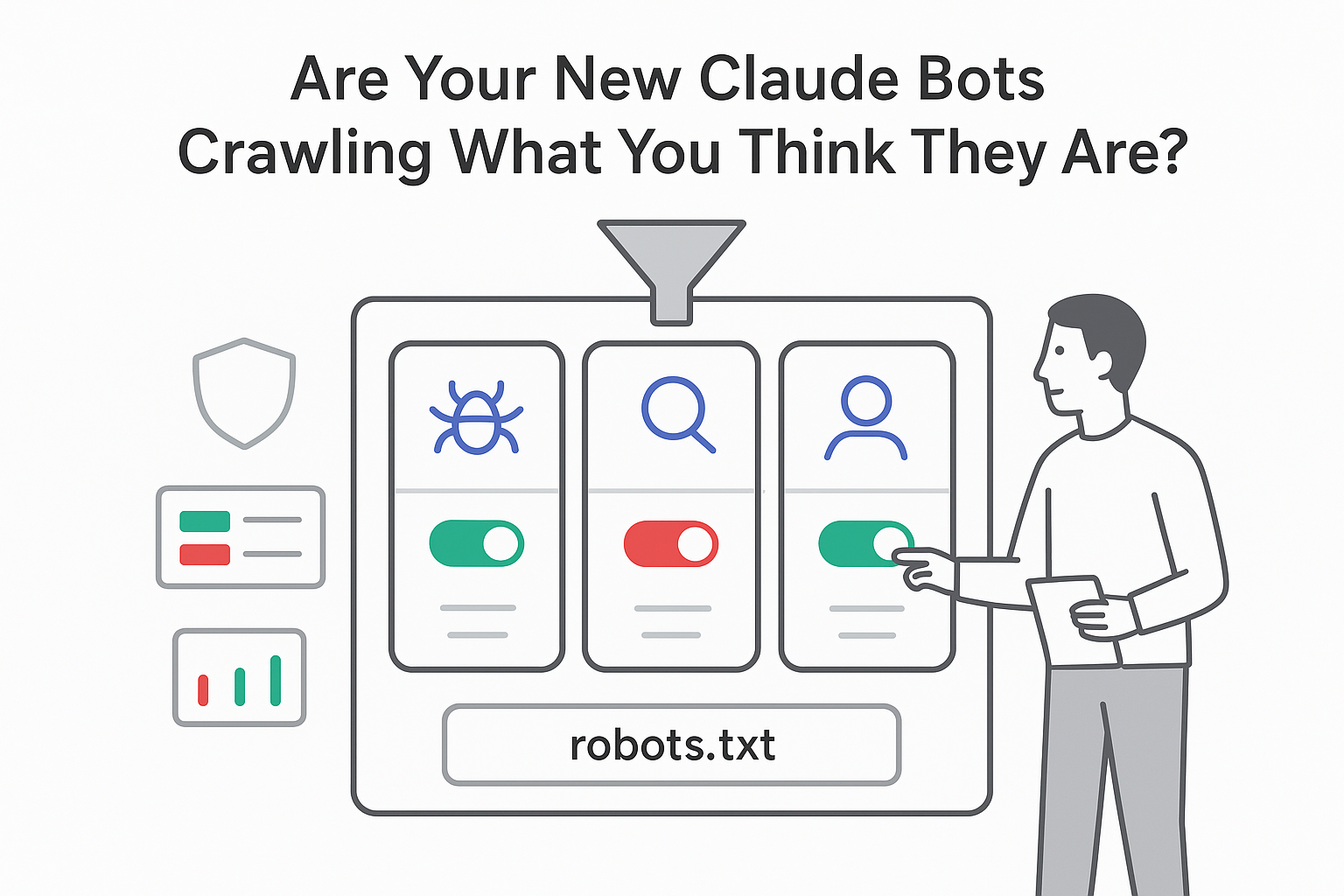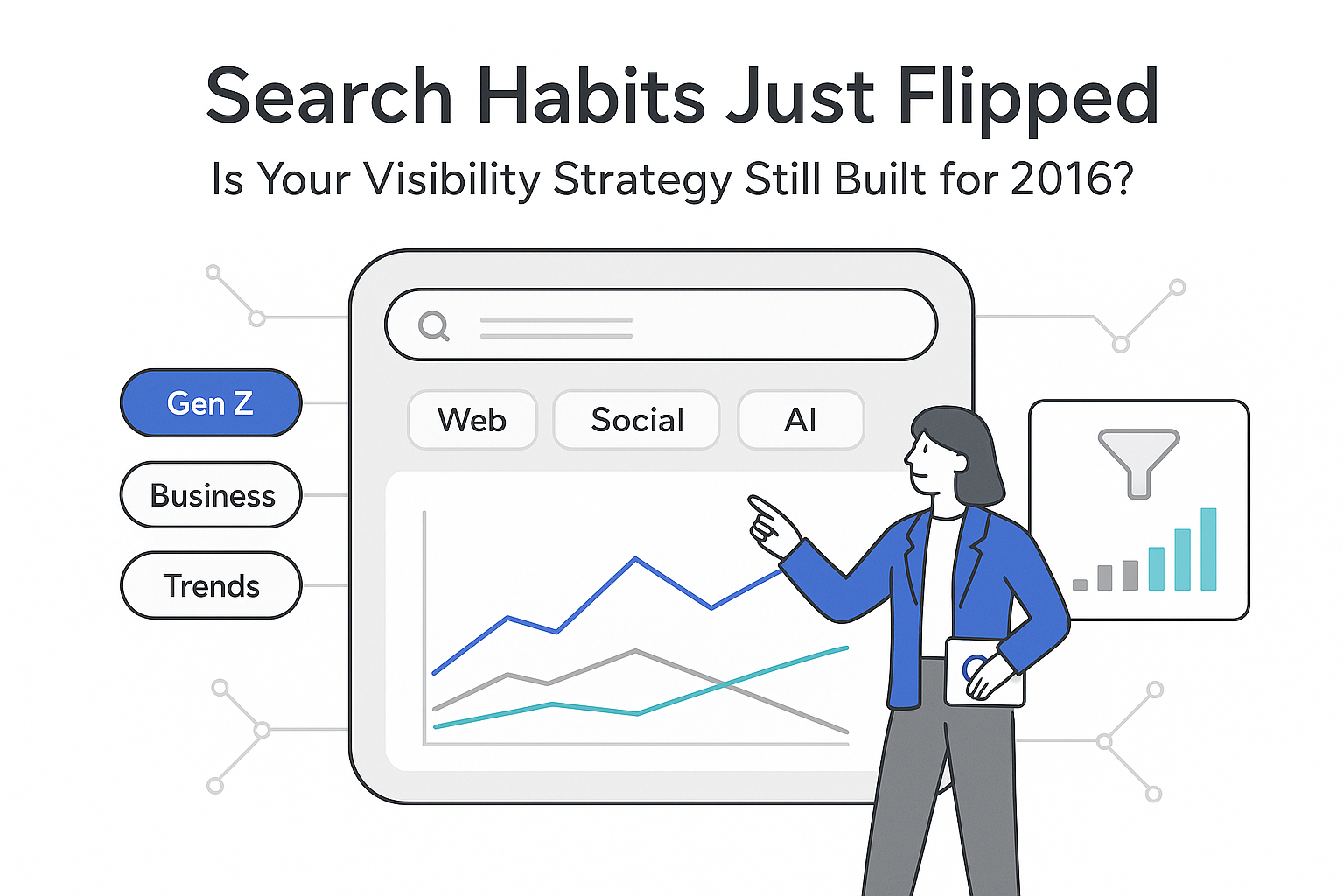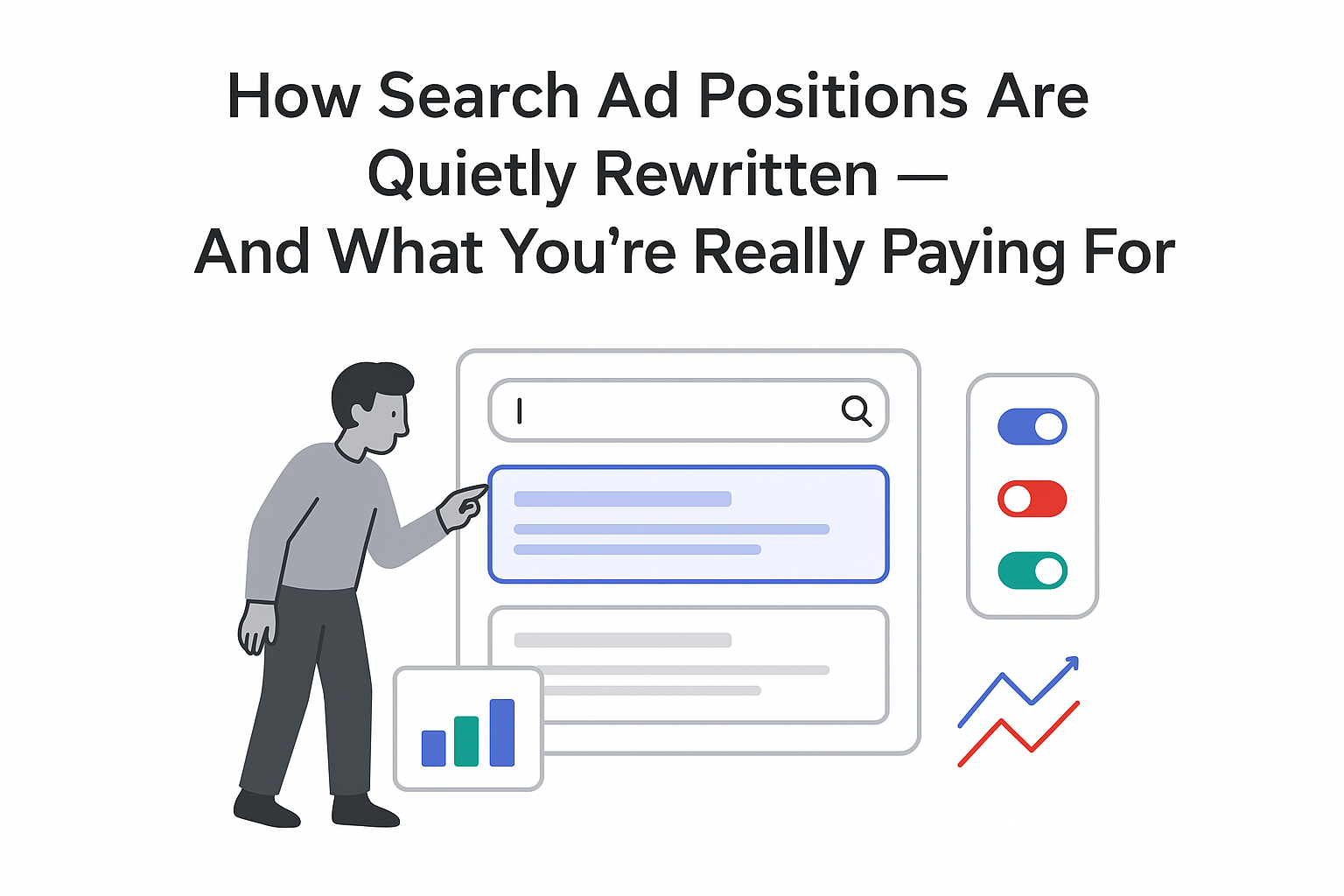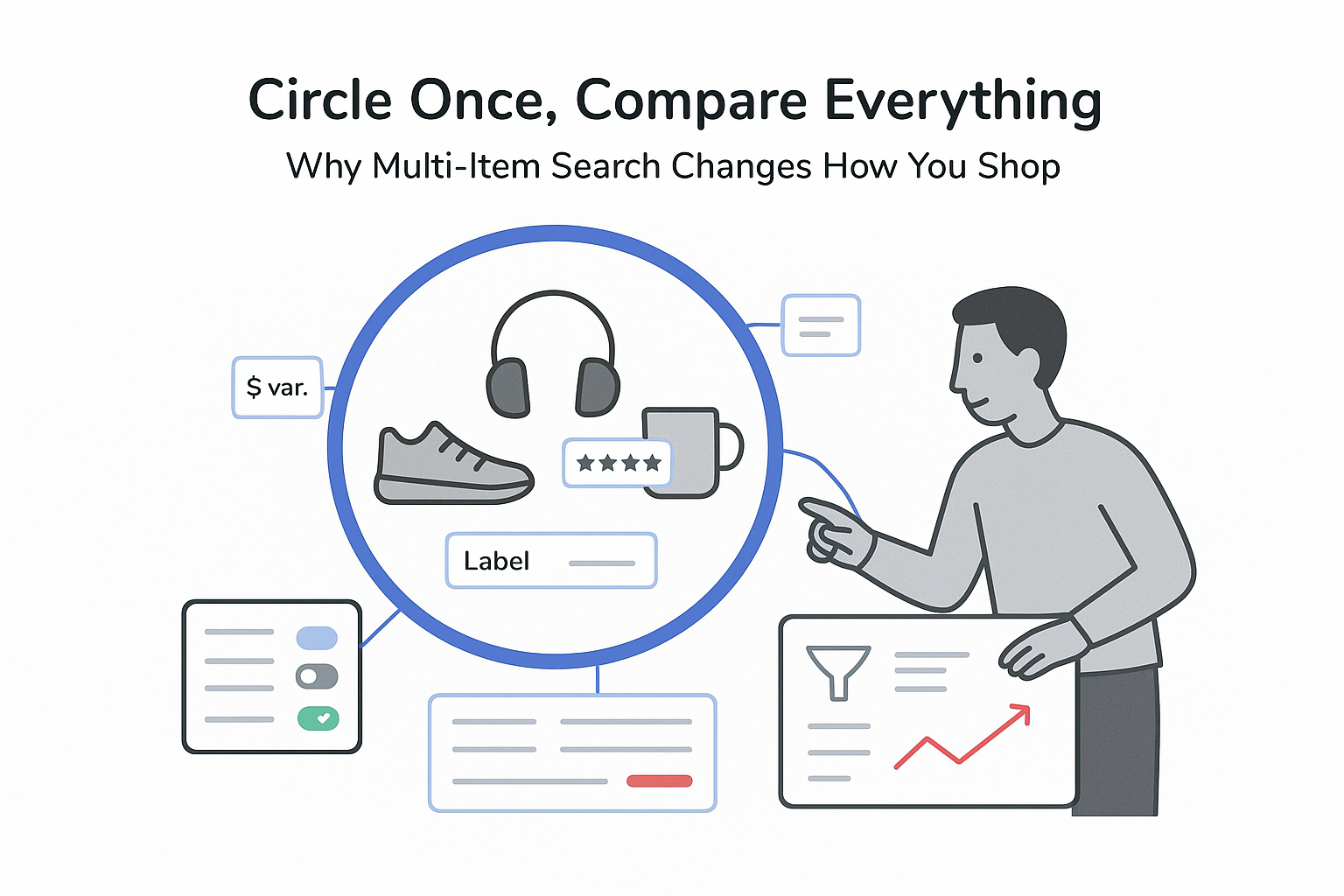Pew Research Center’s March 2025 browser-panel study indicates that Google’s new AI Overviews sharply reduce outbound traffic. When an Overview appeared, only 8% of search sessions produced any click on a web result, compared with 15% on standard results pages.
Executive Snapshot
- 8% of sessions that showed an AI Overview generated a click on any organic result, down from 15% when no Overview was present.
- Only 1% of Overview sessions produced a click on one of the citations listed inside the summary.
- Users abandoned the SERP entirely in 26% of Overview sessions, versus 16% on traditional pages.
- Wikipedia, Reddit and YouTube supplied 15% of all Overview citations and 17% of links in standard results, a concentration well above their share of the open web.
Implication: publishers should model materially lower organic referral volumes on queries that now trigger AI Overviews, especially if their content is not hosted on the three dominant domains.
Method & Source Notes
- Primary source: Pew Research Center, “How Americans Use Artificial Intelligence in Everyday Life,” Search Behaviour Module, fielded 1–31 Mar 2025.
- Panel size: 916 U.S. adults using a browser plug-in that logged page-level URLs and timestamps; 68,879 Google searches captured, 12,593 included an AI Overview.
- Metrics observed: session-level click events, outbound link destinations, session termination.
- Caveats: desktop-only tracking, opt-in panel that skews toward heavier internet users, March 2025 snapshot may not reflect subsequent UI iterations.
Key Findings
Finding 1 – Overall Click-Through Declines
The presence of an AI Overview cut the likelihood of any outbound click nearly in half. Only 8% of Overview sessions produced a click to an external domain, versus 15% for queries without Overviews. This delta aligns with the 42% year-over-year organic traffic drops some publishers have reported for Overview-heavy query clusters.
Finding 2 – Citation Links Rarely Used
Within the 12,593 Overview sessions, just 1% of users clicked a citation inside the AI box. Another 2% interacted only with internal navigation such as expanding the Overview or opening “About this result,” indicating minimal engagement with attributed sources.
Finding 3 – Higher Session Abandonment
Users ended their Google visit entirely in 26% of Overview sessions, a 10-point increase over standard SERPs. The data suggests that Overviews often satisfy informational intent without requiring further browsing.
Finding 4 – Top Three Domains Dominate Citations
- Wikipedia: 6% of all Overview citations, 7% of organic results.
- YouTube: 4% of Overview citations, 5% of organic results.
- Reddit: 5% of Overview citations, 6% of organic results.
Together these domains supply 15% of Overview citations yet represent roughly 1.3% of indexed pages on the public web, underscoring a high concentration of sources.
Interpretation & Implications
- Brands lacking canonical positions on Reddit, Wikipedia or YouTube will receive fewer impressions in AI Overviews and must plan for an even smaller share of a reduced click pool. Content partnerships or syndication on these platforms can partially offset the loss.
- Transactional and local intent queries are less affected: AI Overviews appear on 9% of those searches versus 29% of informational searches. Marketers should reinforce schema markup and paid coverage in unaffected segments while monitoring rollout.
- Long-form expert content may gain indirect exposure if excerpted in Overviews, but the traffic offset will hinge on whether Google inserts future commerce modules, which were absent during Pew’s study period.
- Regulatory actions that mandate attribution or payments could alter click behaviour. Budget planning for 2026 should incorporate multiple scenarios rather than extrapolating current trends.
Contradictions & Gaps
- Google leadership claims that “AI Overviews generate more overall traffic to the open web,” but the company has not disclosed its methodology, and the statement conflicts with Pew’s observed click logs.
- No mobile data were captured; StatCounter shows that mobile accounts for 64% of U.S. Google searches, so absolute impacts may differ.
- Time-on-SERP was not measured; users who copy brand names for later visits remain untracked.
Data Appendix
| Metric | AI Overview Present | No Overview | Delta |
|---|---|---|---|
| Sessions analysed | 12,593 | 56,286 | — |
| Any outbound click | 8% | 15% | −47% |
| Click on AI citation | 1% | n/a | — |
| Session abandoned | 26% | 16% | +10 pts |
| Top-3 domains share of citations | 15% | 17% | −2 pts |
Sources: S1 – Pew Research Center browsing-tracker dataset, Mar 2025; S2 – aggregated Google Search Console exports, Apr–Jun 2025; S3 – Netcraft Web Server Survey, Feb 2025; S4 – interview with Sundar Pichai, The Verge, 15 May 2025; S5 – StatCounter GlobalStats, Mar 2025.







.svg)